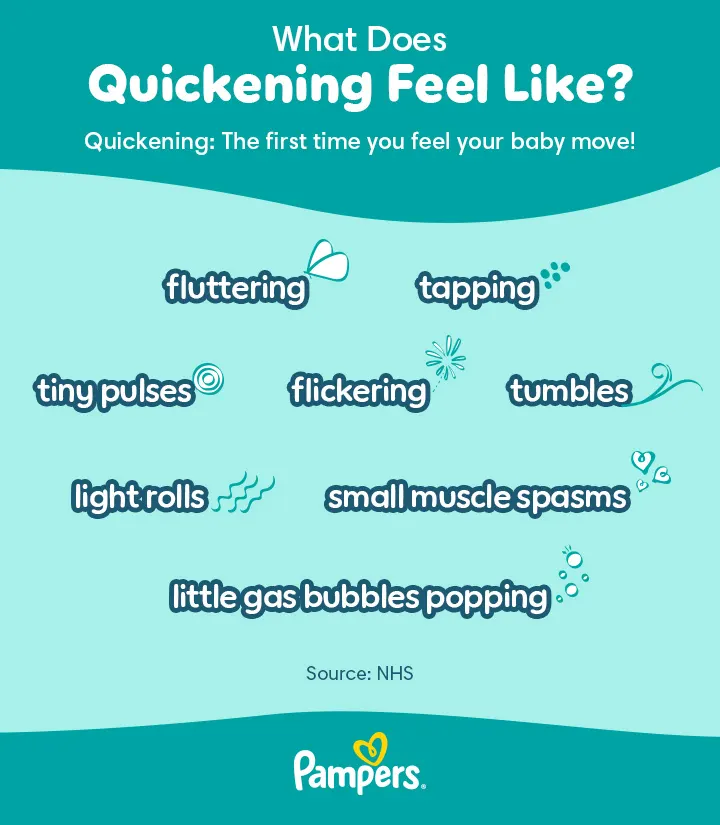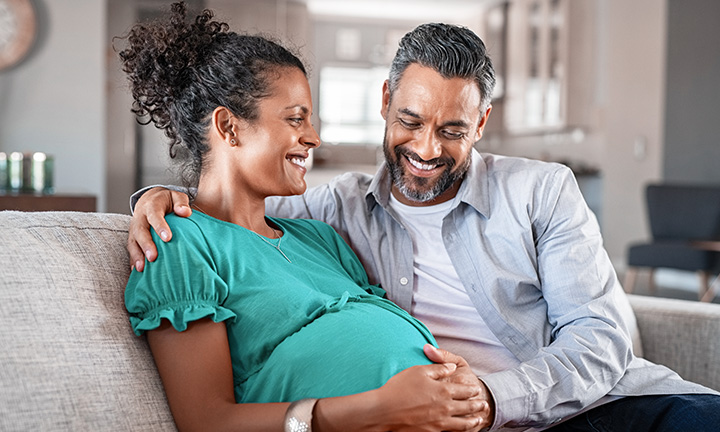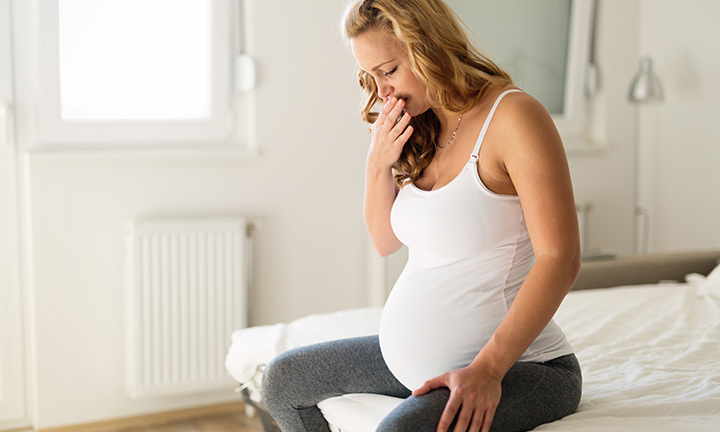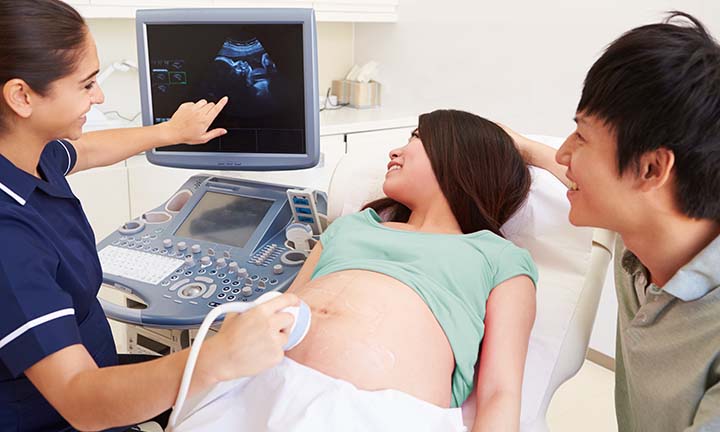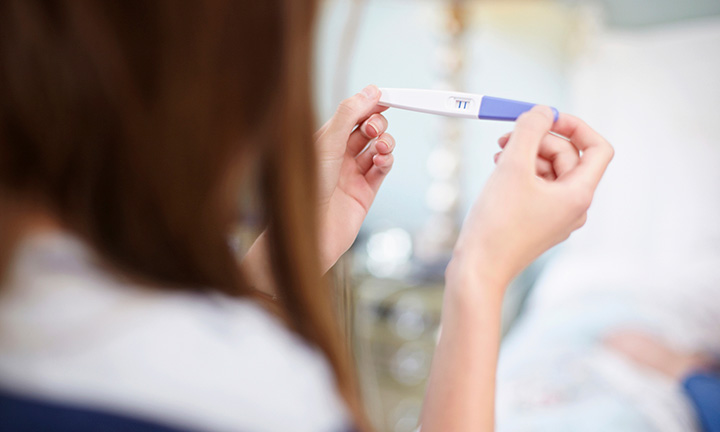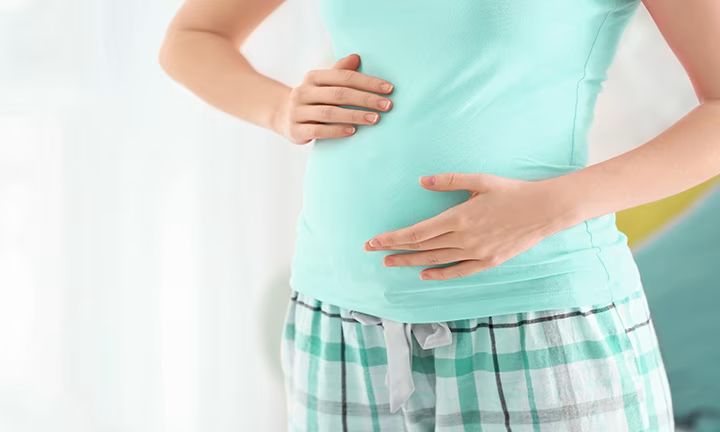
When Can You Feel Your Baby Move?
You may anticipate those little flutters that often mean you’re feeling your baby move for the first time. This is an exciting time in your pregnancy journey! Your little one will normally be moving before you even feel them, so you may be asking questions such as ‘When will I feel my baby move?’ and ‘What does baby movement feel like?’ Read on to find out the answers to these exciting questions and more.
What Is Quickening in Pregnancy?
The first time you feel your baby move in pregnancy is sometimes known as quickening. But it’s important to know that foetal movement is much more complex, and that your little one is certainly moving around more than you know! Quickening is when you first feel the movement, not the first time it occurs. Your baby may start moving around in the womb at about 12 weeks, but you probably won't be aware of any activity at this early stage as your baby is still very tiny.
BABY NAME GENERATOR TOOL

Baby name generator
By gender:
By theme:
When Do You Feel Your Baby Move?
A common question about movement in pregnancy is ‘When do you start feeling your baby move?’ The timing of the first movements varies, but it may occur at around 20 weeks of pregnancy if this is your first baby. But, of course, everyone is different, so it’s perfectly normal to experience quickening in pregnancy earlier or later than 20 weeks in your pregnancy. But how early you feel your baby move with your second pregnancy can be different, possibly closer to 16 weeks. If you’ve been pregnant before, you may be more aware of what those first baby movements feel like, and your second pregnancy symptoms might be a little different, such as feeling those movements slightly earlier than first-time parents. It's important to keep in mind that every pregnancy is unique, so you may feel your little one move sooner or later than others. If you have any concerns or questions about your baby's movements, consult your midwife or GP for more advice.
What Does Baby Movement Feel Like?
Perhaps you’ve heard about ‘pregnancy flutters’, which is how many describe feeling their baby move for the first time.
In addition to your stomach feeling fluttery, what do these movements feel like? Some people often wonder how to notice the difference between gas bubbles and baby moving. Feeling your baby move for the first time can feel different for everyone, but other ways to describe it include
Don't worry if you can't decipher what it is you're feeling! Your baby's movements will be subtle, but as time goes on they'll become stronger and more apparent.
Stay patient if you haven’t felt your baby’s little movements by 18 or 20 weeks. You’ll likely feel some foetal movement around 20 to 24 weeks, but it might be challenging to recognise as your baby is still quite tiny. If you have any questions, talk to your midwife or GP about what to anticipate with early foetal movement.
When Do You Feel Your Baby Kick?
Feeling baby movements in the womb is probably very exciting for you! It’s a reminder that your baby is growing and developing, and it might also be an emotional moment for you as you bond with your little one. After you feel those first fluttery movements at 16 to 24 weeks, you may notice that your baby's movements get gradually stronger and more frequent. At about 32 weeks, the movements usually stay roughly the same until you give birth. It may be good for you to get to know your baby’s movements and patterns so you can be aware of any changes if they happen. Although every baby is different, and your little one might move earlier or later than what’s described below, here’s a general summary and typical timeline of foetal movement:
What Do Baby Kicks Feel Like?
They're called baby kicks for a reason! As your baby's movements become stronger and sharper, they may feel like kicks or jerky movements. You may even feel your little one hiccupping, moving their elbows, changing positions, pushing, or any other type of movement.
As your baby moves more often, you’ll start to notice a pattern that you might be able to anticipate. Perhaps you’ll notice more movement after mealtimes, and maybe you’ll begin to recognise their pattern in the morning or at night. Once you can feel them move with your hand on your abdomen (likely in the third trimester), so can others! Just wait for that pattern to start and call your partner or family over!
FAQS AT A GLANCE
Early foetal movement typically starts around 12 weeks. Although your baby will likely be moving inside your uterus by then, they’re probably too small for you to feel anything yet. It’s usual to feel your baby move for the first time between 16 and 24 weeks, but remember that every pregnancy is different.
The Bottom Line
Feeling your baby move for the first time in your pregnancy is an exciting milestone that you might be anticipating. By definition, ‘quickening’ in pregnancy is when you feel your baby move for the first time, though they’ll move around your uterus before you can feel them! Once this occurs, you’ll start feeling your baby move more and more as they grow bigger and more active. When do you start feeling your baby move, and how early can it occur? Every pregnancy is different, but it’s typical to experience it around 20 weeks for a first pregnancy. If you’ve been pregnant before, you may notice these movements around 16 weeks. But it could occur earlier or later, and that’s normal. By 20 to 24 weeks, you’ll likely start feeling regular movement, and as you enter your third trimester, you can anticipate baby kicks, jerking movements, stretches and hiccups! Talk to your midwife or GP if you have any questions or concerns about foetal movement. The first time you feel your little one move often feels like little pregnancy flutters, an exciting milestone in your journey! Know that those movements are a positive sign and a chance to bond with your new baby.
Read more about Pregnancy
Join Pampers Club and get:

